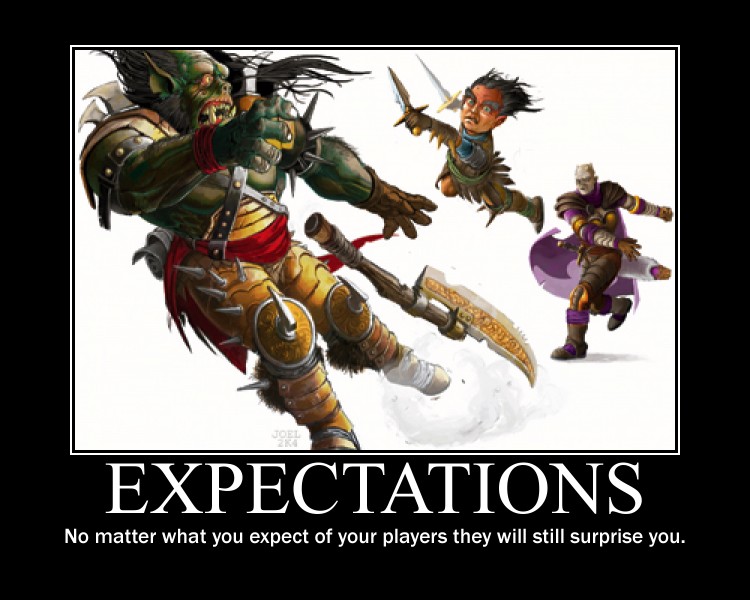
So you have the perfect story line and an idea of how you want your Campaign World to be. You’ve managed to find a group of people that want to play, and you want to get everybody ready. So what’s the next move?
A Session Zero is somewhat like a job interview and a brainstorming session for the people that are going to play in your campaign. This is an excellent opportunity to get the group together and establish the dynamic and work anything out before the actual beginning of the campaign.
It’s essential to keep in mind that this session is not a requirement, but it is generally a good idea. If you’re considering a new campaign with a new group and you want some ideas on how to make it all work, sit back, relax and read this article, we took all the best information we could find and wrapped it into one excellent tidy little package for you.
If you’re playing with a new group of people, this is a great idea because it will allow you to get to know each other as a group and work out differences in playing style and everything else that comes along with a Dungeons and Dragons campaign.
So without further delay, let’s dive in and get some great ideas for how a session zero should come about.
Lore
For DMs, this is an opportunity for you to describe the world that you’ve imagined to your group. Describe the world that you would like the campaign to take place in with great detail. You may want to talk about the environment and political climate in your campaign setting. The different races and their interactions with each other are also great topics to bring up here.
Think of this as the grand reveal. Paint the picture in your players’ heads so that they understand the concepts. Talk about magic and its relevance to the world: do people use it? is it widely accepted or is it frowned upon?
Roles
Session zero is an excellent opportunity to establish whether the DM will be playing against the party or helping them along with their quests in more of a storytelling role.
This allows each player to start creating a character in their mind based upon what two they’ve been told about the world that the campaign will be played in. Discussing this allows the party to decide what their role in the campaign is going to be; at least initially, we all know that that can change.
Expectations
Session zero is an excellent opportunity for you as a DM to let your party know what your expectations of them are and give them an idea of the end-game of each campaign. You may also take this as an opportunity to go over what your expectations are from them as a group of actual people.
Though it may seem contrary to the concept of being a DM, this is an excellent opportunity for the people that are playing The campaign to state their expectations for you as a GM as well as discuss possible changes in the campaign that they are going to be playing.
Discussing difficult topics and getting everybody on the same page before the campaign starts is generally a good idea, and it’ll make it more enjoyable in the end.

Image from The Looney DM
Game Rules
Each campaign is different; some of them are going to be out of the box, and it makes it easy to follow the rules because they’re all available in the various game manuals. If you’re running a pre-made campaign, it’s pretty cut-and-dry there’s room for variation obviously, but that’s going to depend on your group.
Table Rules
As previously mentioned to each player has their own experiences and preferences while playing D&D. Session zero is an excellent opportunity to sit down as a group and establish the table rules; for example, Do you get to automatically re-roll natural ones? Does a Nat 20 establish a critical kill? Can playable characters die from mistakes? These are just some ideas of topics that can be discussed as far as table rules go.
As a DM, you want the sessions to roll as smoothly as possible. So if you get that tough stuff out of the way right away before the campaign even starts you have a better chance at establishing a decent set of ground rules.
House Rules
This may or may not be actual house rules, but think of it more as the facility rules. If you are playing in a shop or a store, you are going to have to make sure that the facility rules are followed.
If you are playing at someone’s house, you are going to want to take into account the things that they will allow in their home and the things that they will not allow in their home, or you might not have a place to play the campaign for very long.
Food
Is food going to be allowed during the session? We all know that meetings can run for hours and people are going to get hungry. Is your group going to let people bring their food? Is the host going to provide food? If so, is there a group expectation to chip in monetary funds to cover the cost of the food? These are all great things to discuss during a session zero.
Drinking
Is alcohol going to be allowed during the game session? This is an excellent opportunity to have this discussion and establish the rules as a group and don’t make any assumptions because some people are offended by alcohol consumption others do it regularly. Make sure that the environment that you’re playing in allows the consumption of alcohol before bringing any.
Smoking
Some people smoke, and some people don’t. This is often overlooked when getting a group together to play a campaign. Session zero is an excellent opportunity to lay down the ground rules for smoking, whether it’s acceptable or not acceptable. This is also an excellent opportunity to discuss with the group members about how to discard their cigarettes when they’re done smoking.

Image from me.me
Group Dynamic
As a DM, you want everybody to have a good time and enjoy the campaign that you created. By discussing the rules and your expectations, you are making things clear from your end, by allowing the group to express theirs and discuss their playing styles, you can help to avoid conflict later in the campaign.
There’s always going to be disagreements, and some strife and most of it is usually quickly settled but a session zero allows the group to become a little bit closer and if there is somebody that doesn’t enjoy what’s been created or doesn’t fit into the group as well as they would like, this gives them an opportunity to walk away now instead of after the campaign is well underway.
Character Creation
Now that you have everything else out of the way, it’s time to discuss character creation with the group. Everybody should now have a good idea of the world in the primary setting for the campaign, and it’s time to let the party take shape.
This is an excellent opportunity for everybody to decide their place in the game, and by doing it in a group setting, this is where the party is going to gel for the first time.
Stat Rolling
This is an excellent opportunity for and the group as a whole to develop their characters together. Rolling stats is a tricky thing, especially in Dungeons & Dragons, because everybody has their concept of the rules for rolling stats.
Do you get to re-roll ones one time? Do you have to take the dice as they fall? By rolling up your stats as a group during a session zero, you allow everybody to have these discussions and make sure that the stats are rolled correctly, and everything is fair.
Time for Session One
This sounds like a lot of rules and regulations for a game that’s supposed to be fun and exciting; however, these are just basic guidelines you can take from them what you will and use them as a building block.
One of the greatest things about Dungeons & Dragons is the ability of everybody to be different. Many times the campaign may be an escape from somebody’s reality, and it allows them to work through other things going on in their lives. It’s imperative that you remember that as a DM.
Also, keep in mind that a session zero can occur at any time. If you started a campaign and then there are rifts developing, it is a good idea to sit down and re-establish the group dynamic or work out any issues out-of-game. You may even want to consider doing this if you have to add a new player to the group mid-campaign.
Happy gaming, and may the dice forever role in your favor!
If you’ve never played Dungeons & Dragons and this article has piqued your interest, enter the Tavern to find out exactly how to begin your journey and what you need to start playing Dungeons and Dragons.





